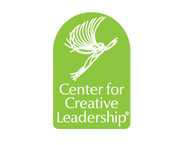Loyalty goes both ways.
/As leaders, we want and often expect loyalty from those around us. In fact, many leaders place loyalty among the top attributes that they seek out and reward in others.
Remember that loyalty is something that is earned, not something you are entitled to. It goes both ways. The best way to engender loyalty in others is to demonstrate that you're loyal to them - that you have their backs and have their best interest in mind. This creates a sense of safety and appreciation that inspires them to respond in kind. You cannot demand or command loyalty in others and expect it to be authentic and sustainable.
Oftentimes, being loyal means putting yourself on the line for someone, so be sure that your loyalty is true and justified. Additionally, be careful not to place so much emphasis on loyalty that you develop a blind spot to other aspects of a person. It’s easy to overlook potential issues when you believe someone is loyal. Strong leaders keep their eyes wide open.
Today, ask yourself: how am I inspiring and earning loyalty in others, and am I keep a balanced perspective about those who are loyal to me?
Read More











PRWeb, September 2016
Susan Tardanico, CEO of the Authentic Leadership Alliance and Executive in Residence at the Center for Creative Leadership, will speak and moderate a panel on “Courageous Leadership in the New Normal” at the annual WICT (Women in Cable Television) Leadership Conference on September 19 in New York City.